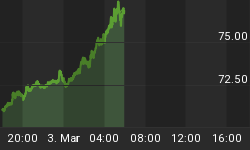Congress is about to consider legislation that could result in a tax on the burning of fossil fuels. Some argue that such a tax would result in increased prices of a wide variety of goods and services and reduced aggregate output. I do not want to get into the argument as to whether the burning of fossil fuels is contributing to global warming or whether global warming is globally harmful. Rather, I want to discuss the issue of taxing pollution in general. In other words, I want this to be a discussion about economic theory, not political-economic theory.
Let's keep it simple. Suppose that the production of widgets emits pollutants into the air that above some level are known to cause human illness. Assume that if all the widget producers are operating at a normal level of output, enough pollutants will be emitted to cause illness to a large segment of the population. This means that population made ill by widget production will have to receive medical care. Again, keeping it simple, assume that those needing and receiving the medical care resulting from widget production pay for it themselves.
Given these assumptions, widget producers are not paying the full cost of production. Part of their cost of production is being borne by the segment of the population made ill from widget production. Under these circumstances, widget producers can keep their prices lower than would be the case if they were paying for the medical care of those they have made ill. By keeping widget prices lower than otherwise would be the case, the quantity of widgets demanded is greater and so, too, are the profits of widget producers.
What if the widget industry were told that only an amount of pollutant byproducts that would not cause illness would be allowed to be emitted? In order to pollute in connection with the production of widgets, a producer had to have pollution permits. Pollution permits would be issued up to the amount of pollution that would not produce illness. How might these pollution permits be distributed among widget producers? One way would be for the government to auction off pollution permits to the highest bidders. The more efficient the widget producer, the higher the price it could pay for the right to pollute and still earn a profit.
Unless methods of widget production could be devised that emitted less pollution, widget production would decrease. This would drive up the price of widgets, all else the same. The higher price of widgets would cause the quantity of widgets demanded to fall. So both the production and consumption of widgets would fall. Widget producers' profits would fall with less output and the increased cost of production from having to purchase polluting permits. So, all else the same, prices in the economy would rise and output would fall.
But all else would not be the same. The government could reduce general taxes by the amount of revenues it received from auctioning pollution permits. The public's reduced tax burden would lead to increased demand for other goods and services. But would not this drive up the prices of other goods and services? No. Recall that widget production would decrease. This would release labor and other factors of production that could be used to produce the goods and services now being demanded because of the tax cut. So, the increased supply of other goods and services would accommodate the increased demand, which would not cause prices to rise. Also, now that pollution had been reduced, households would spend less on medical care. This means that the demand for other goods and services would increase now that a smaller amount of funds were being spent on medical care. And just as factors of production were released from the widget industry, factors of production would be released from the healthcare industry. The shift back in the demand for healthcare would reduce the price of it.
In sum, "taxing" the pollution resulting from widget production would not lead to increased prices in general or decreased output. Rather it would lead to higher prices for and reduced output of widgets, lower prices and reduced output of healthcare and increased output of other goods and services with no increase in prices. Think about this when you hear the partial equilibrium sound bites on the subject of taxing pollution on CNBC and from other glib media sources.
This is how I got hooked on economics rather than phonics!
Paul Kasriel is the recipient of the 2006 Lawrence R. Klein Award for Blue Chip Forecasting Accuracy
















